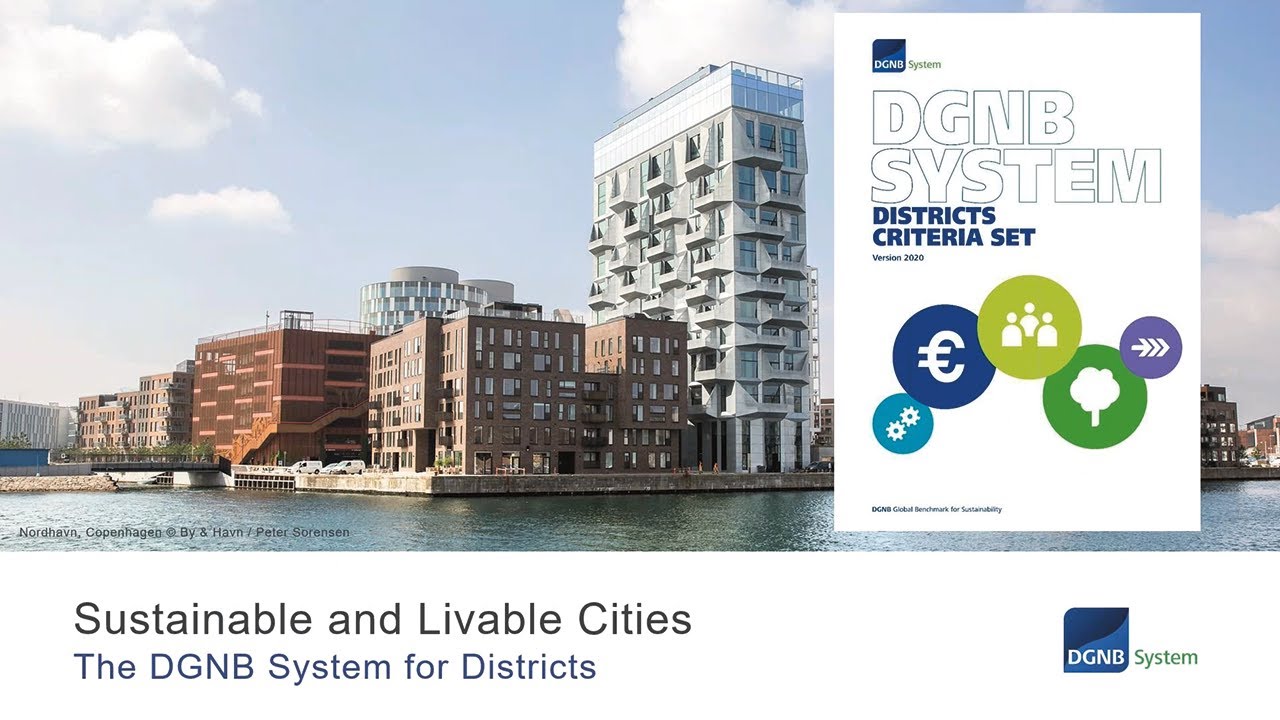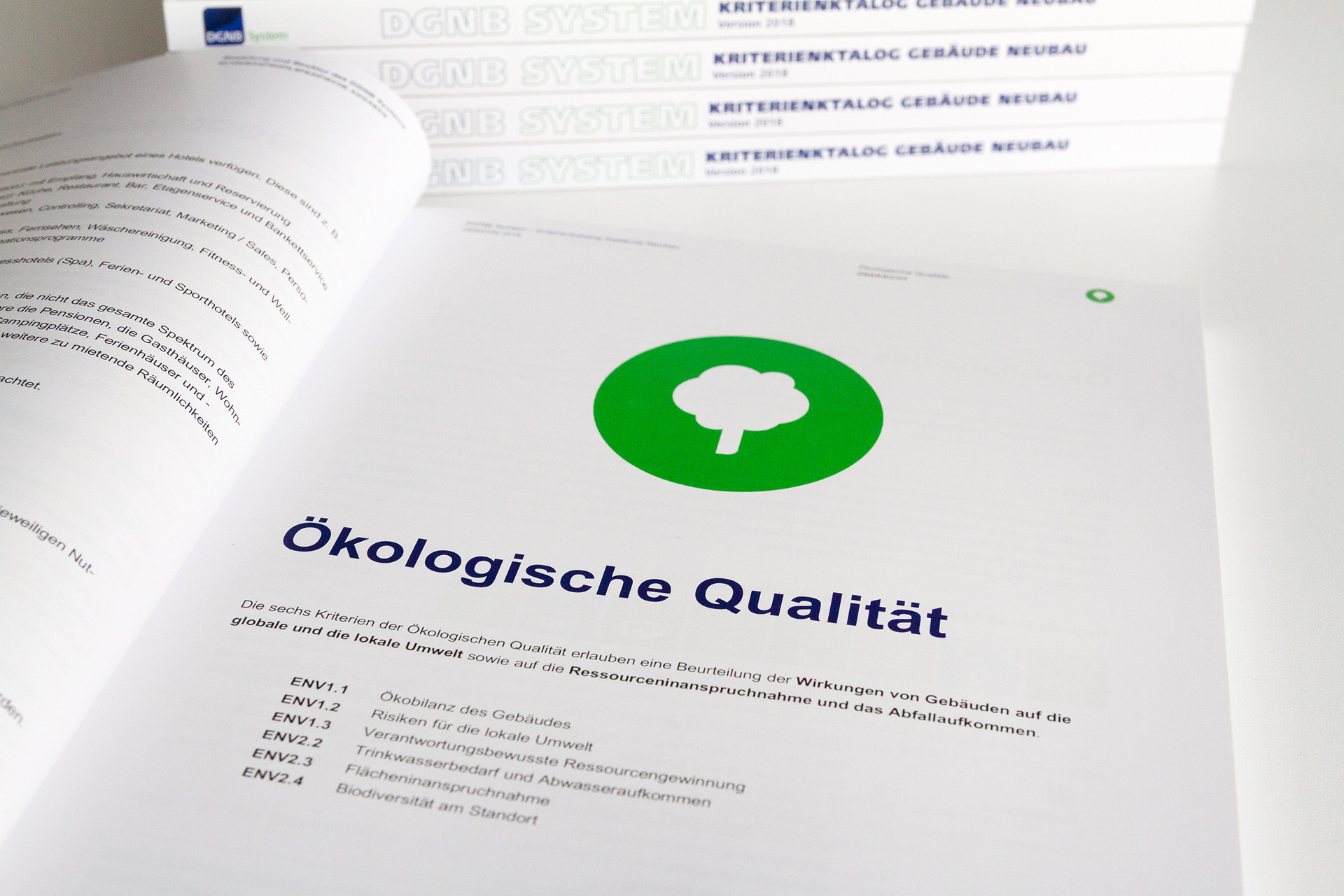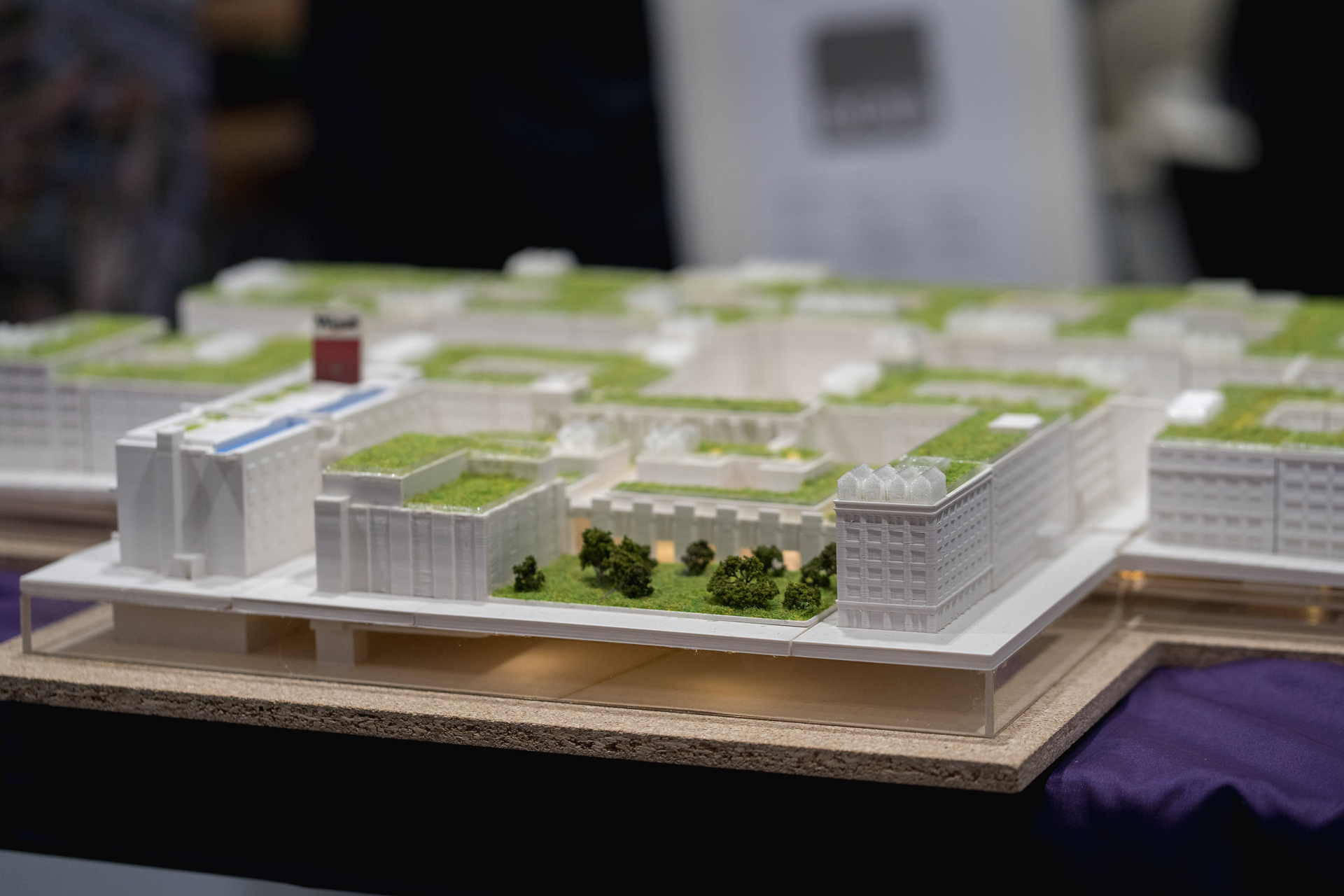Urban districts are districts with a residential share of typically between ten and 90 percent. They are also characterised by public or publicly accessible spaces indoors and/or outdoors. The sustainable and future-oriented design of urban districts is one of the most important tasks of urban planning. In this context, the design and optimisation of individual buildings falls short: Future-proof cities need districts that are able to contribute more to sustainability and climate action than all of their individual buildings taken together. This involves questions of climate action and climate adaptation, district-wide energy supply, sustainable mobility and much more. Accordingly, district planning should be oriented towards sustainability criteria in the most holistic way possible. The DGNB scheme for urban districts supports this as a planning tool.
The current DGNB System for Districts, version 2020, applies to urban districts.
- Contribution to climate action through reduced emissions of greenhouse gases over the entire life cycle
- Adaptation to climate change (use of rainwater; sponge city)
- Improvement of biodiversity (e.g. through greening)
- Establishment of energy circulation and re-use of materials at district level (circular economy)
- Improvement of social and functional diversity
- High quality of life and living
- Improvement of health, e.g. through attractive footpaths and cycle paths as well as low noise and pollutant emissions
- Sustainable mobility offers
- Saving resources and costs through the sensible use of technical systems (smart infrastructure)
- Maximum use and generation of renewable energies in the district
- High flexibility of construction sites, buildings and open spaces
- Holistic consideration of all relevant sustainability requirements
- Transparent and independent quality assurance
- Certification as a tool to implement municipal sustainability goals in practice
- Image building as an attractive and sustainable district
- Communication of the project to the public and increase of acceptance
- Marketing and financing advantages
- High value stability
- Reduced effort for DGNB building certification due to the creditability of evidence from district certification
- International applicability and comparability
- Contribution to the United Nations Sustainable Development Goals (SDGs)
The scheme is intended to support the planning and construction of lively, attractive and at the same time resource-efficient districts. The long-term goal is for people to feel comfortable and to be able to live and work there in a climate-neutral way. The individual buildings do not necessarily have to be certified, but their consumption data and effects on the open spaces, for example through green facades or rooftops, are included in the evaluation.
Briefly explained – the DGNB System for Districts
Get a first insight into the DGNB System for Districts, Version 2020 in this short video: Which criteria are relevant, which types of districts can be DGNB certified?
Selected DGNB certified projects
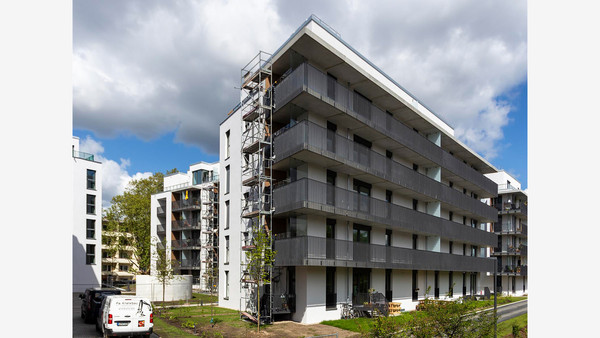
Urban Districts
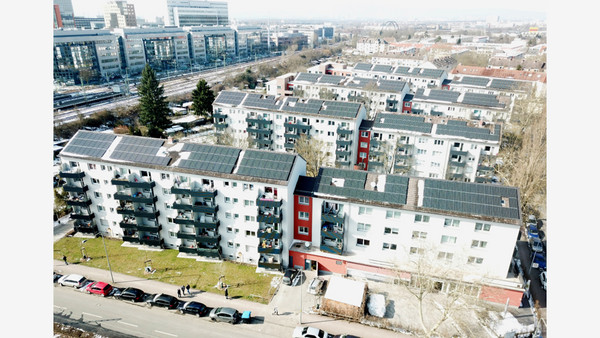
Urban Districts
The criteria sets available
DGNB Criteria Set Districts, Version 2020
Project registration

To register a project, clients must first contract a DGNB Auditor. This auditor can then register the project. Auditors also accompany the entire process and take over the verification and submission to the DGNB. They are active worldwide and specialised in certain schemes.
The current DGNB System for Districts applies to urban districts.
Your contacts
Dr. Stephan Anders
Director Certification Districts
- Phone: +49-711-722322-45
- Email: S.ANDERS@DGNB.DE
For all enquiries, please send an email to our inbox.
Email: quartiere@dgnb.de

